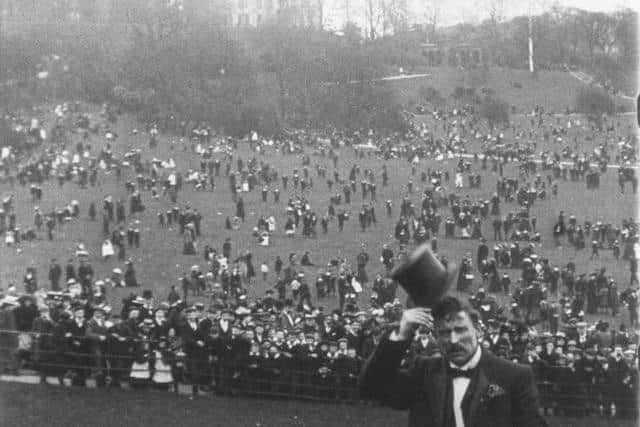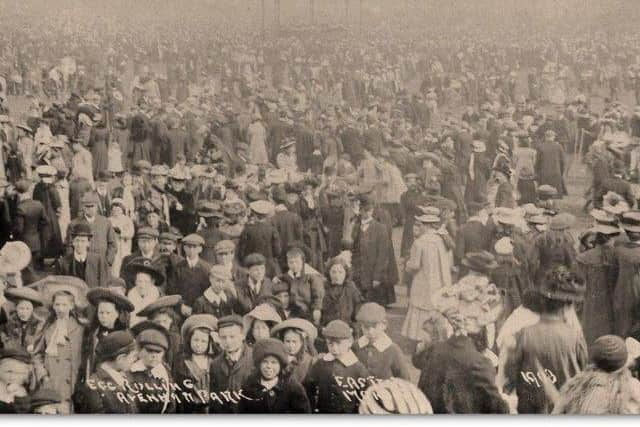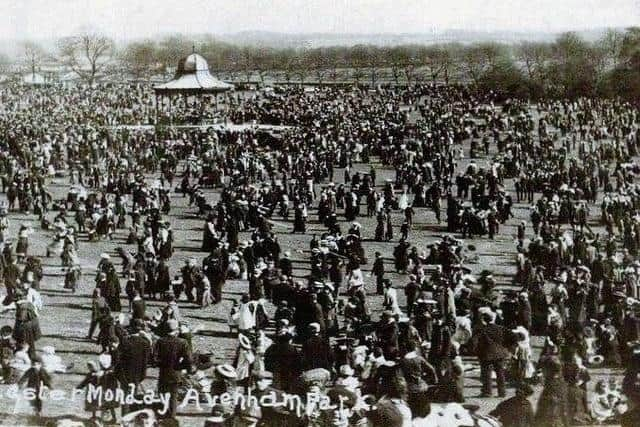Preston's Easter Egg Rolling event: the history of how the Avenham Park tradition began
and live on Freeview channel 276
The ever popular event has been going for over 150 years, and whilst some things have changed, the egg rolling tradition and array of entertainment on offer has always remained the same.
The first ever Easter egg rolling event took place in Avenham Park in 1867, and after years of struggle due to the cotton famine, it gave Prestonians a chance to celebrate in a traditional way.
Advertisement
Hide AdAdvertisement
Hide AdAlthough the park was still under completion and not officially open, locals had evidently already spotted its potential as the ideal egg rolling spot, as they flocked to the park with decorated eggs in hand.


At the time, these eggs were known as pace-eggs, rather than the chocolate eggs we usually see today, and they were a Lancashire custom.
Pace-eggs were traditionally decorated by wrapping the eggs in onion skins and boiling them to give the shells a golden mottled effect.
Children would then roll their pace-eggs down the hills and see who could get theirs the furthest without it breaking.
Advertisement
Hide AdAdvertisement
Hide AdIt was also tradition to destroy any remaining shells on the grassy hills, otherwise Lancashire witches could steal them and use them as boats.


A correspondent from the ‘Liverpool Mercury’ attended this first ever egg roll at Avenham Park and wrote: "I never saw the festival of Eastertide don such an air of thorough-going festivity in any town as in Preston. The people have a park there – nestling snugly on the brink of the river Ribble, so famous for its salmon; and though this park is the very miniature of all its race it is so well ordered, so tastefully laid out, so entwined and enfolded in beautiful walks, so dotted with fountains and streams and miniature lakes, and so picturesquely situated, that it is a very gem of parks.
"But the sight of all others which had most seductive attractions for me was one which embodied what I am told was an old and long observed local custom, of a quaintly curious character.
"The children at Eastertide are all supplied with what are called ‘pace’ eggs – eggs boiled in different dyes by which they are stained, and some very beautifully, with various colours. These eggs are taken to the park on Easter Sunday and Monday, and rolled by the youngsters against each other, for the sole purpose, so far as I could guess, of seeing which would be soonest broken.


Advertisement
Hide AdAdvertisement
Hide Ad"Thousands of eggs were rolled in every direction, children were everywhere laughing and capering in infantile pleasure, the elders were looking on with a more staid and demure, but not less hearty enjoyment, and altogether the scene was one of the strangest and yet most thoroughly happy and enjoyable that I have seen for years.”
Ever since then, it became tradition for Prestonians and residents of nearby towns to congregate in Avenham Park on Easter Monday and roll their pace-eggs, whilst churches would contribute by holding tea parties and entertainment.
Although Easter Egg Rolling events still take place elsewhere in the country, Preston's has grown to be one of the biggest and most well-known- may it last for another 150 years to come!
